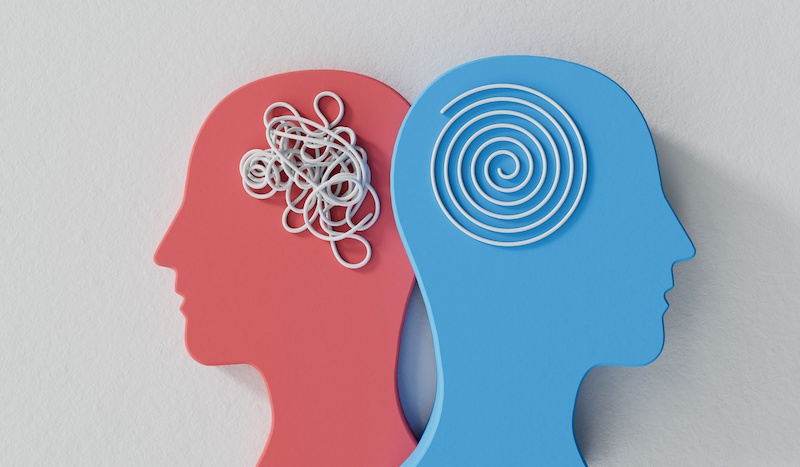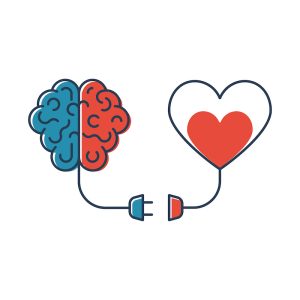Emotional intelligence (EI) plays a crucial role in our personal and professional lives, and its impact is particularly significant in the workplace. Defined as the ability to understand and manage emotions, both our own and those of others, emotional intelligence has become a highly valued skill in today’s competitive business world. In this article, we will explore the concept of emotional intelligence in the workplace and provide practical insights on how to develop and enhance emotional intelligence in the workplace.
1. Introduction
Emotional intelligence, often called EQ (emotional quotient), encompasses a range of skills and competencies that enable individuals to recognize, understand, and manage emotions effectively. In the workplace context, emotional intelligence involves the ability to navigate complex social interactions, build strong relationships, and make informed decisions based on rationality and empathy.

2. Components of Emotional Intelligence
Emotional intelligence comprises several vital components that collectively contribute to a person’s overall EQ:
Self-awareness
Self-awareness is the foundation of emotional intelligence. It involves recognizing and understanding one’s emotions, strengths, weaknesses, and values. Individuals with high self-awareness better understand how their emotions influence their thoughts and behaviors, allowing them to manage their responses more effectively.
Self-regulation
Self-regulation refers to the ability to control and redirect disruptive impulses and emotions. It involves maintaining emotional balance, adapting to changing circumstances, and managing stress effectively. By practicing self-regulation, individuals can maintain composure and make rational decisions even in challenging situations.
Motivation
Motivation in the context of emotional intelligence refers to harnessing emotions to drive and sustain one’s commitment toward goals. Motivated individuals are often resilient, persistent, and have a positive outlook. They channel their emotions to maintain focus, overcome obstacles, and achieve desired outcomes.
Empathy
Empathy is the ability to understand and share the feelings and perspectives of others. It involves being attentive and sensitive to the emotions of colleagues, clients, and team members. Empathetic individuals create a supportive and inclusive work environment, fostering strong relationships and effective collaboration.
Social Skills
Social skills encompass a range of abilities that facilitate effective communication, teamwork, and leadership. These skills include active listening, conflict resolution, persuasion, and influence. Individuals with strong social skills excel in building networks, inspiring others, and achieving common goals.
3. Benefits of Emotional Intelligence in the Workplace
Emotional intelligence offers numerous benefits that contribute to individual and organizational success:
Improved communication
Effective communication is essential for collaboration, productivity, and employee engagement. Emotional intelligence enables individuals to communicate, listen actively, and understand nonverbal cues, leading to better relationships and a more harmonious work environment.
Enhanced teamwork and collaboration.
Teams thrive with mutual trust, respect, and effective communication. Emotional intelligence fosters these qualities, allowing team members to collaborate seamlessly, leverage each other’s strengths, and resolve conflicts constructively.
Effective conflict resolution
Conflicts are inevitable in any workplace. However, individuals with high emotional intelligence can navigate conflicts more skillfully. They can manage emotions, understand different perspectives, and find win-win solutions that satisfy all parties involved.
Increased leadership capabilities
Leaders with high emotional intelligence inspire and motivate their teams. They understand the emotional needs of their employees, provide guidance and support, and create an environment that encourages growth and innovation.
Better decision-making
Emotional intelligence enhances decision-making by incorporating both logic and emotional considerations. By considering the impact of decisions on individuals and teams, emotionally intelligent individuals make informed choices that align with organizational goals and values.

4. Developing Emotional Intelligence in the Workplace
Enhancing emotional intelligence is a lifelong journey that requires continuous effort and self-reflection. Here are some strategies for developing emotional intelligence in the workplace:
Self-reflection and self-assessment
Take time to reflect on your emotions, behaviors, and responses. Identify patterns and triggers that affect your emotional state. Engage in self-assessment tools to better understand your strengths and areas for improvement.
Seeking feedback
Actively seek feedback from colleagues, supervisors, and team members. Their perspectives can provide valuable insights into how your emotions and behaviors impact others. Use feedback as a tool for growth and development.
Practicing mindfulness and emotional self-control
Cultivate mindfulness techniques such as meditation and deep breathing to increase self-awareness and emotional self-control. Mindfulness helps manage stress, improve focus, and respond thoughtfully rather than reactively.
Developing empathy and active listening skills.
Practice empathy by putting yourself in others’ shoes and striving to understand their perspectives. Actively listen to colleagues and team members, demonstrating genuine interest and concern. Validate their emotions and show empathy in your interactions.
Continuous learning and development
Invest in personal and professional development opportunities that enhance emotional intelligence. Attend workshops, seminars, and training programs focused on emotional intelligence. Engage in reading materials and online resources to expand your knowledge.
5. Emotional Intelligence and Professional Success
Emotional intelligence is closely linked to professional success and career advancement. Here’s how it contributes to individual growth and achievement:
Building strong relationships
Emotionally intelligent individuals build and nurture strong professional relationships. By understanding the emotions and needs of others, they develop trust, credibility, and influence. These relationships often open doors to new opportunities and collaborations.
Managing stress and pressure
High levels of emotional intelligence enable individuals to manage stress and pressure in the workplace effectively. They remain composed and resilient, adapting to challenging situations and maintaining productivity and focus.
Adaptability and resilience
Emotionally intelligent individuals are adaptable and resilient in the face of change. They embrace new challenges, learn from failures, and bounce back quickly. This ability to navigate uncertainty and adapt to changing circumstances is highly valued in today’s dynamic work environments.
Building trust and credibility
Emotional intelligence contributes to building trust and credibility with colleagues, clients, and superiors. Individuals with high emotional intelligence inspire confidence and foster strong professional relationships by being authentic, transparent, and empathetic.
Inspiring and motivating others
Leaders with emotional intelligence have a significant impact on their teams. By understanding and meeting the emotional needs of their employees, they inspire and motivate others to perform at their best. This leads to higher employee satisfaction, engagement, and productivity.
6. Emotional Intelligence Training and Programs
To develop and enhance emotional intelligence in the workplace, various training programs and resources are available:
Workshops and seminars
Participate in workshops and seminars specifically designed to develop emotional intelligence skills. These sessions often include interactive exercises, case studies, and practical workplace application techniques.
Coaching and mentoring
Engage in coaching or mentoring relationships with professionals experienced in emotional intelligence. They can provide guidance, support, and personalized feedback to help you develop and strengthen your emotional intelligence competencies.
Online courses and resources
Numerous online courses and resources are available to enhance emotional intelligence. These include e-learning platforms, articles, podcasts, and videos. Explore these resources to gain insights and develop your emotional intelligence skills at your own pace.
7. Challenges and Obstacles in Developing Emotional Intelligence
Developing emotional intelligence can be challenging due to various factors. Here are some common obstacles to watch out for:
Cultural and gender biases
Cultural and gender biases can influence the perception and expression of emotions. Recognizing and challenging these biases is essential to develop a more inclusive and diverse understanding of emotional intelligence.
Resistance to change
Change can be uncomfortable, and developing emotional intelligence often requires individuals to step out of their comfort zones. Overcoming resistance to change and embracing new ways of thinking and behaving is crucial for personal growth in this area.
Lack of awareness and understanding
Many individuals need to be made aware of emotional intelligence or its significance in the workplace. A lack of awareness and understanding can hinder the development of emotional intelligence. Education and communication are key to overcoming this challenge.
Conclusion
Emotional intelligence is a vital skill set that fosters success in the workplace. By cultivating self-awareness, self-regulation, empathy, and social skills, individuals can enhance their emotional intelligence and reap the numerous benefits it offers. Developing emotional intelligence requires commitment, self-reflection, and continuous learning. Investing in emotional intelligence training and programs can accelerate growth in this area and unlock professional success.
Frequently Asked Questions (FAQs)
Q1: Can emotional intelligence be learned and developed?
A1: Yes, emotional intelligence can be learned and developed through self-reflection, feedback, practice, and training programs specifically designed for this purpose.
Q2: What are some signs of high emotional intelligence in the workplace?
A2: Signs of high emotional intelligence include effective communication, empathy towards others, adaptability, resilience, strong relationships, and the ability to inspire and motivate others.
Q3: How can emotional intelligence benefit team dynamics?
A3: Emotional intelligence fosters better communication, collaboration, conflict resolution, and trust among team members, improving team dynamics and performance.
Q4: Are there any recommended books or resources to learn about emotional intelligence?
A4: Yes, some popular books on emotional intelligence include “Emotional Intelligence” by Daniel Goleman, “The EQ Edge” by Steven J. Stein and Howard E. Book, and “Primal Leadership” by Daniel Goleman, Richard Boyatzis, and Annie McKee.
Q5: How can emotional intelligence contribute to leadership success?
Emotional intelligence is essential for leadership success. It builds strong relationships, enhances communication, promotes adaptability, resolves conflicts, and inspires teams. Overall, it empowers leaders to connect, communicate, adapt, and inspire effectively.
Editor’s Note: The post was originally published on August 27, 2015, and has been completely revamped and updated.
